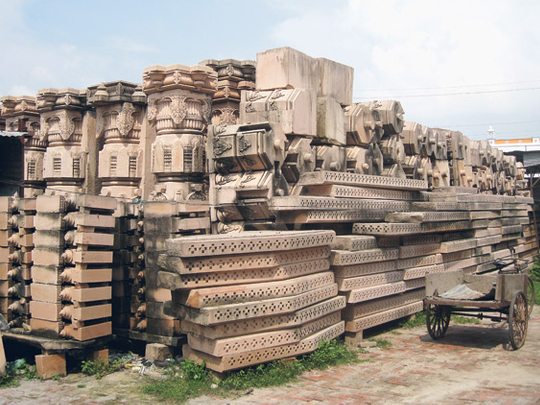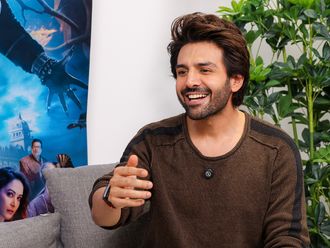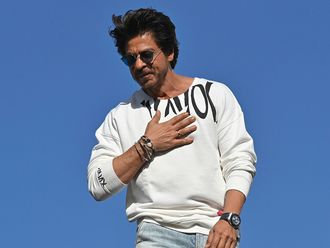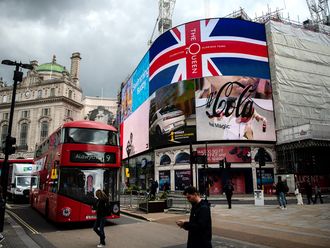
New Delhi: An Indian high court will deliver its verdict on Thursday, September 30, on a religious dispute responsible for some of the bloodiest sectarian violence since independence, a court official said on Tuesday.
The Supreme Court last week ordered the Allahabad High Court to delay its judgement on the long-standing ownership struggle over the site in the northern town of Ayodhya where Hindu activists destroyed a mosque in 1992. The postponement came after retired bureaucrat Ramesh Chand Tripathi appealed to the Supreme Court for a stay on the judgement, to allow for a negotiated settlement.
The three-judge bench, headed by Supreme Court Chief Justice S.H. Kapadia, heard more than two dozen submissions in favour of and against a further postponement of a verdict in the six-decade old legal dispute.
"The contesting parties who filed the Ayodhya title suit have to resolve the matter among themselves through discussions," Finance Minister Mukherjee said on a visit to the eastern state of West Bengal in televised remarks. "If that is not possible, then the court verdict has to be accepted."
One of the main Hindu parties to the dispute, Nirmohi Akhara, an influential Hindu charitable trust, added its voice at the last minute to pleas for a three-month deferral in a bid to seek an out-of-court compromise.
There have been deep concerns the Ayodhya ruling could spark wide unrest in officially secular India in which Hindus represent 80 per cent of the 1.2 billion population while Muslims compose 13 per cent.
Security has been stepped up in Uttar Pradesh state where Ayodhya is located and other so-called "communally sensitive" areas such as India's financial hub Mumbai, to avert a repeat of the religious violence that shook the country when the mosque was razed.
The destruction of the Babri mosque triggered some of the worst communal rioting since partition of the subcontinent in 1947, claiming the lives of more than 2,000 people, mostly Muslims. Since then, the 47-acre site has been cordoned off and guarded by troops.
Hindus say the mosque was built by the Moghul emperor Babur on the site of a temple marking the birthplace of the Hindu warrior god Ram. The drive to build a Ram temple on the ruins of the razed mosque remains an important political plank of the main opposition Hindu nationalist Bharatiya Janata Party (BJP), which came to national prominence over the Ayodhya issue.
The petition before the Supreme Court says delivering the Allahabad verdict poses a particular security risk at a time when India's concerns are focused on the October 3-14 Commonwealth Games in New Delhi.
India has avoided any major outbreak of Hindu-Muslim violence since riots in Gujarat in 2002 and is keen to keep a lid on any unrest during the Games. The Games are already in turmoil with problems ranging from controversy over shabby accommodation to security fears and an outbreak of dengue fever.
"The parties involved in the dispute – the religious leaders – [should] be asked to sit and solve the matter amicably,” said Mukul Rohatgi, lawyer for Tripathi, the main petitioner, said ahead of his court presentation Tuesday.
Before the court verdict, other Hindu and Muslim bodies said the judgement should not be delayed further. "The issue cannot be resolved through negotiations as negotiations have not been able to bring about any result so far," said Zafaryab Jilani, lawyer for one of the Muslim main groups.












